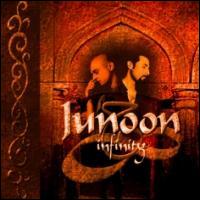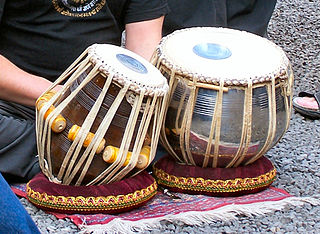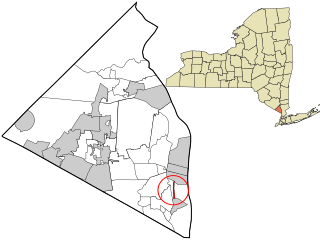
Junoon is a Sufi rock band from Lahore, Punjab, Pakistan, and Tappan, New York, formed in 1990. The band is directed by founder, lead guitarist and songwriter, Salman Ahmad, who was soon joined by keyboardist Nusrat Hussain, bass guitarist Brian O’Connell and vocalist Ali Azmat. Junoon is Pakistan's and one of South Asia's most successful bands; the Q magazine regarded them as "One of the biggest bands in the world" and The New York Times called Junoon "the U2 of Pakistan". Since their inception, the group has released a collective total of nineteen albums: seven studio albums; one soundtrack; two live albums; four video albums; and five compilations. They have sold over 30 million copies worldwide.

Junoon is the debut album of the Pakistani sufi rock band Junoon, released on 30 September 1991. It was released by EMI and recorded at the EMI studios in Karachi in 1990. The album is produced by founder, songwriter and lead guitarist Salman Ahmad. The album contained a total track list of twelve songs with eight tracks being in Urdu language, three tracks in English and one instrumental.

Inquilaab is the third studio album and the fourth overall album of the Pakistani band Junoon. Although previous albums by Junoon also achieved considerable success, 'Inquilaab' contained the band's first major hit, the patriotic song "Jazba-e-Junoon". The album also contained the hit "Saeein," which marked Junoon's foray into what later became the sufi rock sound that Junoon is most popularly associated with. Other hits from the album were "Mera Mahi" and "Husan Walo".

Azadi is the fourth studio album and the fifth overall album of the Pakistani sufi rock band, Junoon. The album was released in 1997 and established the Sufi rock sound that the band pioneered on their previous album, Inquilaab. The album was popular worldwide, bringing fame to Junoon.

Parvaaz is the fifth studio album and sixth overall album by the Pakistani band Junoon. It was released in 1999 and features songs mostly based on the poetry of the great Punjabi Sufi poet Bulleh Shah.

Ishq is the sixth studio album and the ninth overall album of the Pakistani sufi rock band, Junoon. The album was released on January 1, 2001 and was released by the title of Andaz outside Pakistan.
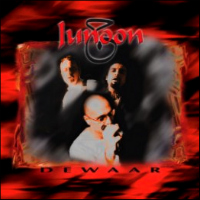
Dewaar is the seventh studio album and the thirteenth overall album of the Pakistani band, Junoon released in 2003. This was the last studio album released by the band after which both vocalist, Ali Azmat and bassist, Brian O'Connell, left the band.

Junoon for Peace is the first live album and the eleventh overall album by the Pakistani band, Junoon. The album was recorded live on October 27, 2001.
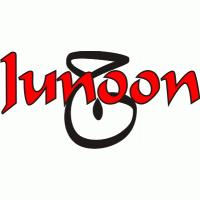
Junoon is a Pakistani sufi rock band founded in 1990 by lead guitarist and only original member, Salman Ahmad. The band has released seven studio albums, as well as numerous live albums, compilations, singles, video albums, music videos, and soundtracks. Keyboardist Nusrat Hussain left the band after the first studio album release and was replaced by bassist Brian O'Connell. They released their self-titled debut album in 1991; which barely made a dent in the Pakistani music industry. Guitarist Mekaal Hasan and band producer John Alec replaced O'Connell, and have been playing bass for live shows since O'Connell's departure.
"Jazba-e-Junoon" is a song by the Pakistani sufi rock band Junoon. It is the thirteenth and final track from the band's album third album, Inquilaab (1996), released on EMI Records. Written by lead vocalist and guitarist Salman Ahmad and it is the lead single on the album, the song uses blending of rock guitars and bluesy vocals with eastern elements like the use of tablas, raga-inspired melodies and traditional Pakistani folk music.
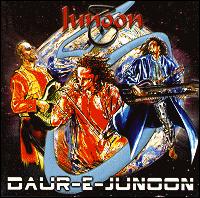
Daur-e-Junoon is the second live album and overall the twelfth album released by the Pakistan rock band, Junoon. The album was released on March 29, 2002.

Rock & Roll Jihad is the first soundtrack album and the eighteenth overall album of the Pakistani band, Junoon. The soundtrack is based on Salman Ahmad and Junoon's musical journey. The album features five new studio recordings along with five live tracks from "The concert for Pakistan" and the album was officially released on June 1, 2010 under the record label Nameless Sufi Music on all major online stores. Salman Ahmad, lead guitarist & vocalist, also published a book named, Rock & Roll Jihad: A Muslim Rock Star's Revolution, regarding his time with Junoon and all the struggle he faced to become a rockstar.
"Talaash" is a song by the Pakistani sufi rock band Junoon. It is the seventh track and the only single released from the band's second album, Talaash (1993), released on EMI Records. Written by guitarist Salman Ahmad, it is the lead single on the album. The song uses blending of rock guitars and bluesy vocals with eastern elements like the use of tablas. It remains one of the band's most popular songs. In addition, the album version of the song featured in the compilation album, Kashmakash, released in 1995.
"Heer" is an instrumental song by the Pakistani sufi rock band Junoon. The instrumental was first released on the band's self-titled debut album, Junoon released in 1991 and later in the fourth studio album, Azadi released in 1997. The instrumental is composed by the band's lead guitarist Salman Ahmad. The instrumental uses blending of rock guitars and bluesy vocals with eastern elements like the use of tablas, raga-inspired melodies and traditional Pakistani folk music.
"Saeein" is a song by Pakistani sufi rock band Junoon. It is Junoon's eleventh single and the second from the 1996 studio album Inquilaab. The song is written by lead guitarist, Salman Ahmad and lyricist, Sabir Zafar. Due to the song's popularity, it also featured on the band's fourth studio album Azadi released in 1997. "Saeein" is one of Junoon's most popular songs, and has been covered numerous times, most notably by Indian singer Harshdeep Kaur. The song marked Junoon's foray into what later became the sufi rock sound that the band is most popularly associated with. The song uses blending rock guitars and bluesy vocals with eastern elements like the use of tablas, raga-inspired melodies, traditional Pakistani folk music, and Eastern inspired poetry.
"Bulleya" is a song by the Pakistani sufi rock band Junoon, released in 1999. It is the first track from the band's fifth album, Parvaaz (1999), recorded at Abbey Road Studios, London and released on EMI Records. The song is a famous kafi written by the sufi saint Bulleh Shah. Bulleh Shah is famous for his spiritual and metaphysical poetry, and Bullah Ki Jaana is one of his well-known poems. The song is composed and produced by lead guitarist and founder of the band Salman Ahmad. It is the lead single on the album, the song uses blending of rock guitars and bluesy vocals with eastern elements like the use of tablas, raga-inspired melodies and traditional Pakistani folk music.
Dosti is the second compilation album and seventh overall album of the Pakistani rock band, Junoon. The album was released by Virgin Records India in 1998 and was produced by Brian O'Connell and Salman Ahmad. The album includes famous singles such as "Dosti", "Husan Walo", "Neend Athi Nahin" and "Chalay Thay Saath".

Talaash is the second studio album of the Pakistani sufi rock band Junoon, released on September 3, 1993. The album was to be their first with bassist Brian O'Connell, who joined the band after Nusrat Hussain departed from the band to pursue his career as a solo artist and released his debut album Amrit in 1992. This was also the first Junoon album produced by Salman Ahmad and O'Connell, both also went on releasing several other albums by Junoon before O'Connell left the band after Dewaar in 2003. The album also served as a soundtrack for the Pakistani television show Talaash, which featured the band and its novel storyline was based on the band.
